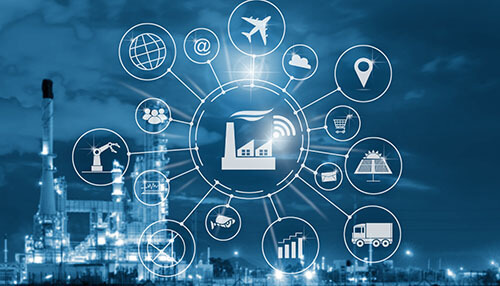Modern Technology is something that businesses have become accustomed to over many generations of owners and managers. With new technology can come new opportunities from the technical and practical advancements each new technology brings with it. But along with the new scope for development can come challenges in making the new technology work within a business’s chosen industries, often alongside business-critical existing technologies that must be supported and maintained.
Industries that have managed to achieve this balance have found their marketplace boosted and often more profitable, but technology develops rapidly, and keeping up with change to stay competitive can be challenging.
Today’s marketplace makes it critical that a business recognize when new technologies are emerging and when to invest in those technologies to stay reliant and competitive,
These six industries are some that have faced both challenges and new opportunities as a result of a changing technological landscape.
1. Manufacturing
The modern manufacturing industry is one of constant innovation and technology adoption. Its current transformation is centered around the adoption of a group of new technologies that are being termed “industry 4.0”. Collectively the technologies are reshaping how manufacturers are integrating with warehousing and distribution to provide a seamless efficient service. One of the driving forces behind this shift in working practices is the Industrial Internet of Things (IIoT), with an array of different sensors, individual processes are managed with individual devices being connected over the Internet.
Information is gathered at each stage of manufacturing and distribution. This information is used to improve the efficiency of the manufacturing process from start to finish. One area that has seen rapid growth in the use of IIoT sensors is predictive maintenance. With this approach toward maintenance, factory owners use specific analytics platforms and data from IIoT sensors and devices to determine and predict when machines will need maintenance procedures. This intelligent approach helps reduce unnecessary maintenance downtime and reduce the occurrence of unexpected machine failures.
Where manufacturing businesses are striving for greater efficiency these IIoT sensors can provide valuable data to learn more about the flow of raw materials, goods, and labor throughout industrial facilities. With careful data collation and analysis, a detailed picture of production can be generated. AI machine learning algorithms can then be used to check for bottlenecks and inefficiencies within the production line so improvements can be implemented and high efficiency can be maintained.
2. Construction and Architecture
Modern architecture and the construction industry is another sector where new technology is changing how companies and firms are approaching their work.
The ever-increasing implementation of Building Information Modeling (BIM) that enables easy analysis of construction data can give firms insight into complex construction projects and allow oversights in design to be quickly resolved. New visualization techniques are giving visualization to structures that have yet to leave the drawing board and enable non-technical clients to have the understanding that only seeing something first-hand can give.
When it comes to the often hard and dangerous job of constructing the building designs, tools like augmented reality (AR) which utilizes software to project computer-generated images within a virtual headset and create a lifelike render of a project, are being used now to great effect in reducing the number of changes after a section of a project has been already constructed. This is yielding incredible increases in productivity and efficiency to an industry that traditionally finds making post-construction changes expensive and time-consuming.
3. Legal Services
To be effective, solicitors often use many tools and technologies to put their point across, when arguing a case. In many cases, the improvements brought by better technology have started to change how solicitors present evidence in the law courts.
The remote conferencing technologies that took a lead during the lockdowns imposed by Covid-19 have progressed to enable juries to take advantage of the practicality and convenience offered by the systems.
Looking into the future increased technology and automation are likely to bring changes to the legal system and take some of the tedious work from legal professionals enabling them to spend their time in more productive ways.
4. Streaming Services
The decline of live broadcast television and DVD rentals has led to the emergence of new streaming platforms. This has seen massive changes in the sector’s business landscape with the disappearance of brands like Blockbuster. The businesses that emerged into the new landscape of entertainment media were brands like Netflix with new streaming-only business models.
In such a short time the industry has completely changed its business model, gone are the DVD rental businesses, and in their place streaming services have taken over. It is hard to imagine now that back in 2007 Netflix made its money by renting and posting DVDs to customers over the internet. Its introduction of a streaming platform changed all that and had an industry-changing effect that has not stopped to this day.
5. The Gambling Industry
The gambling and gaming industry has faced many challenges from legislation and individual countries’ governments to enable them to trade. It is no surprise that they have been early adopters of new technology. The implementation of technology has enabled the gambling industry to offer an increased level of safety and security for customers and their finances. This is one area where gambling is far ahead of Cryptocurrencies which currently are not regulated and as such have not had to take up the offer of enhanced security that new technology offers.
With payment methods seeing technology open up options that were not available in the past is seeing businesses rapidly incorporate this new safe technology for their customer’s benefit. One example of this is how online payment methods have changed how these businesses are run, meaning there has been a huge rise in boku casinos. Online gambling is now bigger than it has ever been, this won’t be changing any time soon as the industry works so well with the technology that has developed to support it.
6. Fast Food and Retail Coffee
The adoption of technology in the food industry took a massive leap back in 2009 when Starbucks became one of the first retailers in the industry to introduce an app. Although novel at the time, it ushered in a new future of shopping directly from your mobile device to a keen and willing customer base. Adding features like loyalty bonuses and special offers became easy by utilizing the flexible technology on offer. With many restaurant chains now offering similar, it is becoming an industry requirement to offer trade-in this way to survive and remain relevant within the industry.
The App has enabled restaurant owners to stay in touch with their customers whom traditionally would have had no contact with a restaurant in the past. Restaurants are now able to promote special offers directly to existing customers through their apps.




